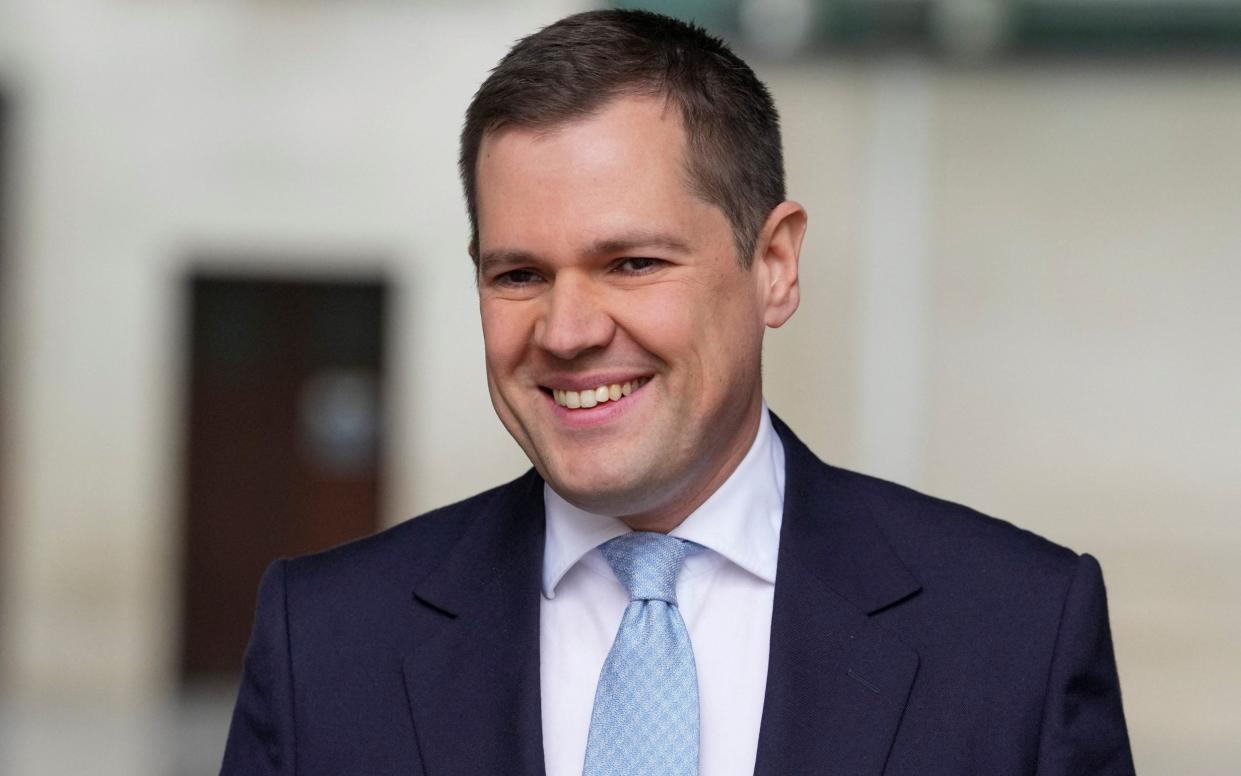Jenrick: I share voters’ frustrations but backing Reform means a Labour dictatorship

A former Cabinet minister has said he “shares the frustrations” of traditional Tory voters defecting to Reform UK, but warned that a vote for Nigel Farage’s party would lead to a Labour “elective dictatorship”.
Robert Jenrick, who resigned last year over Rishi Sunak’s Rwanda Bill, pointed to failings in immigration policy as well as the high tax burden, the “soft” criminal justice system and “inefficient” public services as reasons for traditional Tories deserting the party.
In an article for The Telegraph, he warned that the success of Reform threatens to kill off conservatism for good as a “meaningful force” in parliament.
It comes as the latest poll, for this newspaper, puts Reform up three points to 13 per cent with the Tories down to 21 per cent - their lowest vote share since the end of Theresa May’s premiership in May 2019. Labour remains in the lead at 46 per cent.
Mr Jenrick said: “I have immense sympathy for those natural conservatives who feel let down and drawn to Reform. Not only do I understand their frustrations, I share many of them.
“The tax burden is too high, the criminal justice system too soft and public services too inefficient. My disagreements with the Government on immigration policy meant I resigned from Cabinet.”
He warned that the country is “sleepwalking” into a “very dangerous future”, saying: “A Labour Party with an elective dictatorship will be equally unrestrained on raising taxes.”
Mr Jenrick is the second prominent figure on the Right of the party to make a public intervention in the campaign this week after former home secretary Suella Braverman blamed the Conservative party’s “depressing” electoral position on its failure to tackle migration and said she had urged Mr Sunak to take action.
Both have been touted as potential future leaders of the Conservative Party, with Mr Jenrick’s article likely to be seen by some as a pitch for the job.
He said: “Some voters feel so angry with the Tories that a Labour landslide is a price they are willing to pay. Again, I sympathise with their frustrations and know that we must meet the British public’s expectations. That is the task I have dedicated myself to since resigning.”
In his article, which does not mention Rishi Sunak by name, Mr Jenrick went on to say that the Tories “must rediscover our roots and build the truly conservative alternative our country needs and millions yearn for”.
He said: “Their success can only weaken the conservative movement. The Right cannot unify after the election if there is no meaningful force in Parliament to coalesce around”.
It is understood that Tory leadership hopefuls have been “doing the rounds” among MPs, offering to come and help with their campaigns.
Figures on the Right of the party say that a “rebel manifesto” remains “under discussion” but admitted that the initiative may not get off the ground because everyone is feeling “under the cosh” and concentrating their efforts on fighting for their seats.
Mr Jenrick is defending a majority of 21,816 in his Nottinghamshire constituency of Newark, where he has served as an MP for a decade, since 2014.
Meanwhile, in an interview with The Telegraph, Mr Farage declared that the “Tory brand is broken”, adding that Conservative voters he has met now view the party with “contempt”.


 Yahoo News
Yahoo News 
